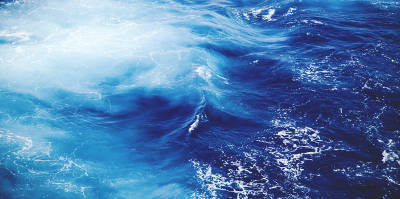← students

| First name: | Morten |
| Last name: | Iversen |
| Country: | Denmark |
Thesis Subject:Carbon Turnover in Sinking Particles in the Marine Environment
| Education: | |
| 2000 – 2003
Biology study, Roskilde University, DK Bachelor in environmental biology: Ecophysiology and Ecotoxicology |
|
| 2003 – 2004 Master in Biological Oceanography, Leibniz-Institut für Meereswissenschaften Kiel (D) & Southern University of Denmark Odense (DK) | |
| 2003 – 2004 Performing experiments and writing a scientific paper: Drillet G, Iversen MH et al. (2006)“Effect of cold storage upon eggs of the Calaniod copepod Acartia tonsa (Dana) and their offspring” Aquaculture, Vol. 254, issues 1-4, p. 714-729 | |
| Summer 2004
Job description and location: Writing teaching material, Southern University of Denmark. Subjects; coral biology, ecosystems, temperate waters, tropical waters, marine animal biology, ocean currents, and basic food webs. |
|
| 2004 – 2005 Master thesis on degradation processes of fecal pellets, Danish Institute for Fisheries Research Charlottenlund (DK) & Southern University of Denmark Odense (DK) | |
| 2006 – 2009
Ph.D. thesis at Max Planck Institute in Bremen, Alfred-Wegener-Institut für Polar- und Meeresforschung in Bremerhaven and at MARUM - RCOM (Research Center Ocean Margins). Working title: Carbon turnover in sinking particle in the marine environment. |
Scientific Interests and Goals:The main objective of this study is to investigate the carbon turnover in sinking particles in the epi- and mesopelagic zones of the oceans, i.e. down to a depth of 1000 meter. Not only organic carbon (POC) is important in this perspective, but also inorganic carbon (PIC) since high CaCO3 production potentially lead to large net burial of carbon. Therefore accurate measurements of POC and PIC fluxes are needed to address the remineralization pathways of marine particles. 90% of the vertical export from the epipelagic zone is remineralized in the mesopelagic, still the remineralization mechanisms are partly a mystery. The purpose of this study is to investigate the importance of fluxes from the particles in the carbon cycle. These investigations will both be performed in laboratory to understand the general governing mechanisms and in situ (in the upwelling zone vest of Cape Blanc, Africa) to obtain actual natural estimates of remineralization prosesses. The investigations consist of:
Experimental investigations of fecal pellet:
1. Measurements of carbon remineralization in copepod fecal pellets
(using microsensors).
2. Sinking rates of fecal pellets; comparing of measurements versus
estimations via model calculations.
3. Measurements of carbonate dissolution in copepod fecal pellets
(using microsensors).
4. The role of zooplankters in particle remineralization. (e.g.
fragmentation (coprorhexy) or ingestion (coprophagy) of particles).
Experimental investigations of marine snow aggregates:
5. Organic carbon degradation in marine snow aggregates (using microsensors
and Winkler titration).
6. The importance of scavenging of ballast material for sinking velocities.
7. Carbonate dissolution in marine snow aggregates (using microsensors).
8. Observations of coccolithophore aggregation to estimate the importance
of formations of micro environments in marine snow (potentially leading
to carbonate dissolution).
9. Estimates of field abundance, content, and activity of marine snow
aggregates.
Experimental investigations of fecal pellet:
1. Measurements of carbon remineralization in copepod fecal pellets
(using microsensors).
2. Sinking rates of fecal pellets; comparing of measurements versus
estimations via model calculations.
3. Measurements of carbonate dissolution in copepod fecal pellets
(using microsensors).
4. The role of zooplankters in particle remineralization. (e.g.
fragmentation (coprorhexy) or ingestion (coprophagy) of particles).
Experimental investigations of marine snow aggregates:
5. Organic carbon degradation in marine snow aggregates (using microsensors
and Winkler titration).
6. The importance of scavenging of ballast material for sinking velocities.
7. Carbonate dissolution in marine snow aggregates (using microsensors).
8. Observations of coccolithophore aggregation to estimate the importance
of formations of micro environments in marine snow (potentially leading
to carbonate dissolution).
9. Estimates of field abundance, content, and activity of marine snow
aggregates.
Selected Publications:Iversen MH, Poulsen LK (2007) "Fecal pellet grazing behaviour of three species of copepods: Calanus helgolandicus, Pseudocalanus elongatus, and Oithona similis" MEPS 350: 79-89
Ploug H, Iversen MH, Koski M, Buitenhuis ET (2008) "Production, oxygen respiration rates, and sinking velocity of copepod fecal pellets" Limnol. Oceanogr. 53(2): 469-476
Poulsen LK, Iversen MH (2008) "Degradation of copepod fecal pellets by the plankton community of Øresund (Denmark) during a year´s succession" MEPS 367: 1-13
Ploug H, Iversen MH, Fischer G (2008) "Ballast, sinking velocity, and apparent diffusivity within marine snow and zooplankton fecal pellets: Implications for substrate turnover by attached bacteria" Limnol. Oceanogr. 53(5): 1878-1886
Ploug H, Iversen MH, Koski M, Buitenhuis ET (2008) "Production, oxygen respiration rates, and sinking velocity of copepod fecal pellets" Limnol. Oceanogr. 53(2): 469-476
Poulsen LK, Iversen MH (2008) "Degradation of copepod fecal pellets by the plankton community of Øresund (Denmark) during a year´s succession" MEPS 367: 1-13
Ploug H, Iversen MH, Fischer G (2008) "Ballast, sinking velocity, and apparent diffusivity within marine snow and zooplankton fecal pellets: Implications for substrate turnover by attached bacteria" Limnol. Oceanogr. 53(5): 1878-1886


